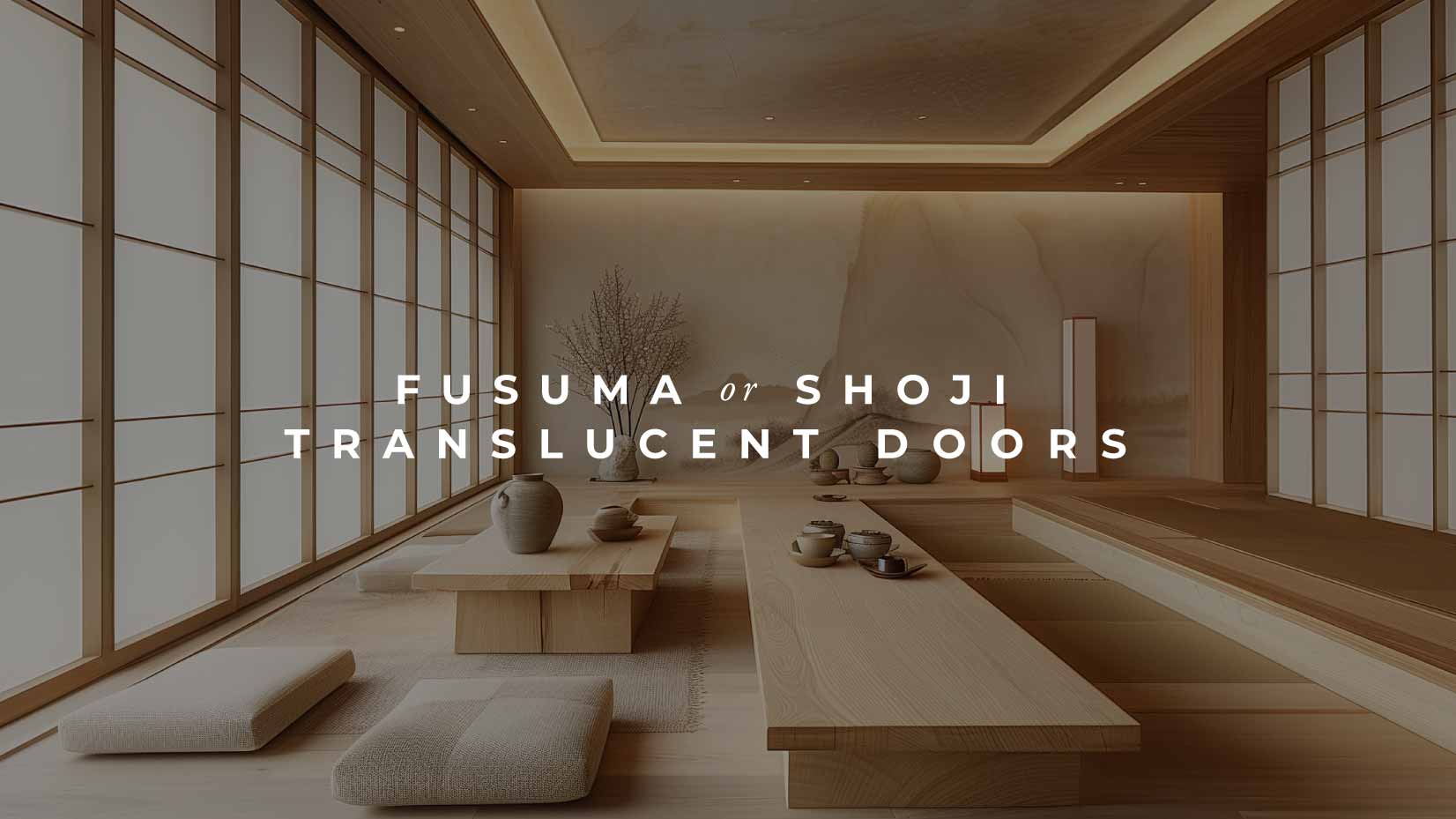
The Value & The Costs of
Translucent Shoji Doors
The Value
Shoji doors are traditional Japanese sliding doors made from wooden frames with translucent paper panels called washi. Washi allows diffused light to pass through while maintaining privacy and creating a soft, warm ambiance. Shoji doors are traditionally used to separate indoor and outdoor spaces, but you can incorporate them between rooms as well. Similarly, Fusuma are opaque sliding doors, often decorated with painted designs, used to divide rooms and conceal storage areas. Both characterized by their elegant simplicity and versatility, shoji and fusuma doors provide flexibility in space utilization, allowing for easy reconfiguration of interior layouts and the creation of multi-use spaces. By sliding effortlessly on tracks, these doors can open or close off spaces as needed, maximizing usability and adaptability for various activities and lifestyles. Additionally, shoji doors add an element of elegance to the home's interior design, serving as a focal point and conversation piece that reflects your appreciation of traditional Japanese craftsmanship and culture.
The Costs
Incorporating the use of shoji doors in your modern custom home will largely depend on the overall design of your home. While they are typically more expensive than sheetrock walls, they are often more affordable than operable glass doors. The materials, including the choice of wood for the frames, the paper used for the panels, as well as the type of hardware (e.g., sliding tracks, handles, and latches), will all affect the total cost. While it may cost you more to implement multiple shoji doors of a certain quality, if design and cultural authenticity is important to you, it could be well worth the expense as an addition to your custom home.
SEE PRICE RANGE OPTIONS
FOR OUR MODERN HOMES
